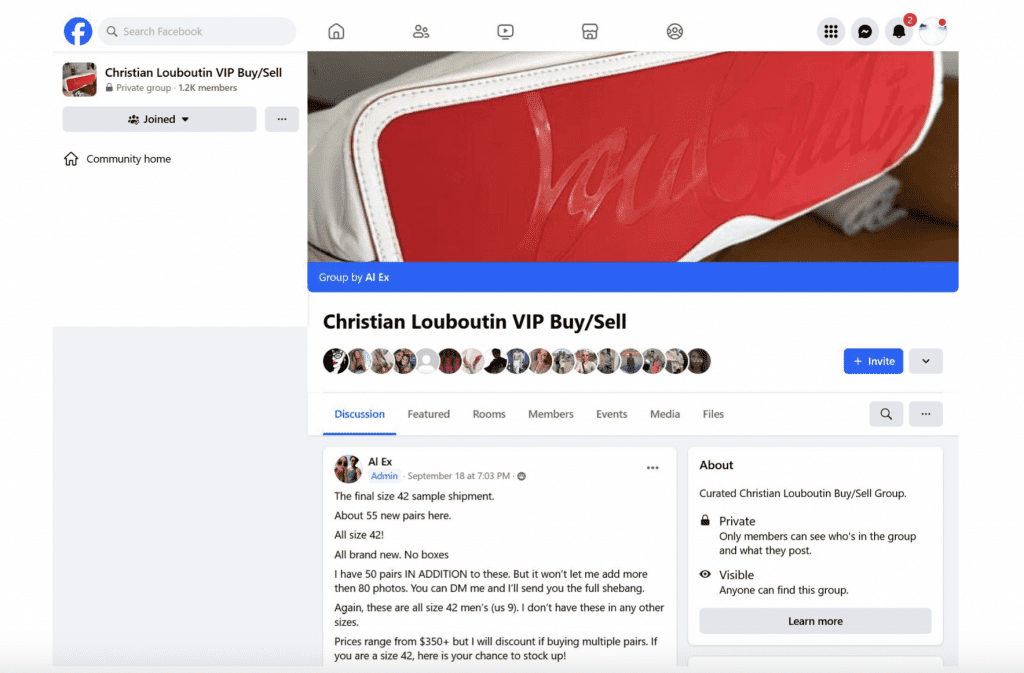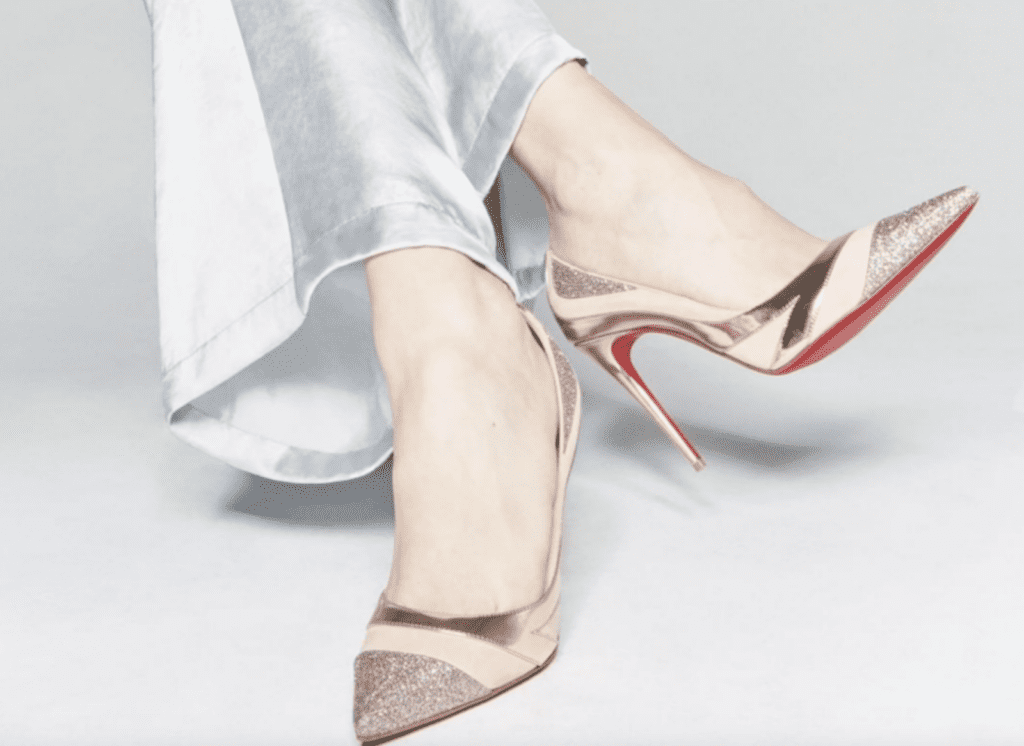Christian Louboutin has filed a trademark lawsuit against a former employee, who it claims carried out a scheme to steal thousands of dollars worth of sample shoes from its premises in France and offer them up for sale via social media platforms, including a private Facebook group. In the complaint that it filed in a New York federal court on December 21, Louboutin asserts that during his tenure in its retail stores, Mehdi Mohamed Nasrallah stole and shipped hundreds of sample products, including ladies and men footwear and leather goods, to the United States, thereby, infringing its “famous” trademarks, engaging in unfair competition and conversion, and breaching his employment agreement with the brand.
According to the complaint, Louboutin alleges that Nasrallah was employed as an Assistant Boutique Manager – first in Paris, where he began stealing sample footwear and accessories and shopping them to the U.S., including to a third-party accomplice that Louboutin already filed suit against in a New Jersey federal court. Even after moving to New York to work in its Madison Avenue store, Louboutin claims that Nasrallah “continued to coordinate with accomplices in France to unlawfully offer for sale infringing products using the [Louboutin] trademarks, and to ship [those] infringing products from France to the U.S.”

The problem is multi-faceted, per Louboutin. In addition to stealing the company’s sample footwear and accessories, which are created “solely for creative, testing and showcasing purposes,” hence, the conversion cause of action, Louboutin argues that by reselling the products, Nasrallah infringed its well-known trademarks, including its red-sole mark and Louboutin word marks, among others. Specifically, Louboutin asserts that not only does it “never offer sample shoes or leather goods for sale to the public,” none of its samples “are subjected to [its] quality assurance and control (‘QA/QC’) inspections or procedures.”
Louboutin states that it has “established and adhere[s] to legitimate, substantial and non-pretextual QA/QC procedures for [its] products to safeguard and ensure the high quality of the products and the value of [its] marks, and that products sold to the public adhere to [its] high standards.” Because the products at issue “were not manufactured and distributed under [Louboutin’s] QA/QC controls … and/or because they materially differ from the products authorized by [Louboutin] for sale to the public,” they are not “genuine” Louboutin products, the French footwear brand contends.
Delving into this point further, Louboutin argues that because it is “solely entitled to exercise control over the distribution, handling and sale of its branded products,” Nasrallah’s sale of the samples “without such QA/QC control is an infringement of [Louboutin’s] rights, threatens to dilute [its] brand and constitutes a grave threat to the value of the marks in which [Louboutin has] invested significant efforts, time and money.”
Beyond such alleged trademark infringement and unfair competition, Nasrallah also breached his employment agreement by perpetrating the “stolen goods scheme,” according to Louboutin. The company says that it prohibits employees from “re-selling any Louboutin product” and also from “using or disclosing Christian Louboutin’s ‘Confidential Information’ except in the proper performance of the employee’s duties.” The company defines “Confidential Information” as including, among other things, “any non-public information … related to the business or affairs of Christian Louboutin, its affiliates, … including, but not limited to … development projects, … designs and the design process, … and other technical information in relation to the development or supply of any future product or services of Christian Louboutin or its affiliates.”
With the foregoing in mind, Louboutin claims that Nasrallah – who was ultimately fired for the scheme in June 2022 – has “recklessly, willfully, and intentionally violated [its] trademark rights with the deliberate intention of trading on the valuable goodwill and reputation established in [those] marks.” And at the same time, Louboutin asserts that the infringing footwear and accessories “are likely to deceive, confuse and mislead purchasers and potential purchasers into believing that such unlicensed goods were authorized for sale and backed by [Louboutin], which they are not.” As such, the company alleges that as a result of Nasrallah’s scheme, it has suffered from “serious irreparable injury and damages” in an amount to be determined at trial.
In addition to monetary damages, Louboutin is seeking preliminary and permanent injunctive relief to bar Nasrallah from, among other things, using any of its trademarks or any confusingly similar marks in order “to deceive consumers or the trade into falsely believing that there is an affiliation or relationship between [himself and Louboutin].”
The case is Christian Louboutin SAS et al v. Nasrallah, 1:23-cv-11104 (SDNY).
Updated
January 8, 2024
In an order on January 8, Judge Louis Stanton of the U.S. District Court for the Southern District of New York granted the footwear brand’s bid for a preliminary injunction on its trademark infringement and breach of contract claims to block Defendant Mehdi Mohamed Nasrallah from using an array of Louboutin trademarks, including its red sole mark, in order to deceive consumers into falsely believing that he maintains an affiliation or relationship with the brand.











